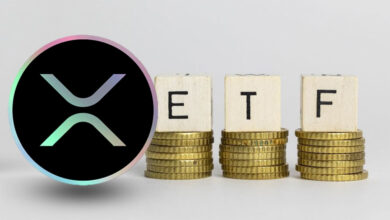China and Singapore Join Forces for Green Financing, as Chinese City Adopts Digital Yuan Salaries

According to recent reports, civil employees in Changshu, a city in China, will receive their full salaries in digital yuan starting in May 2023.
Financial authorities in the city issued a notice stating that civil employees at all levels in public service, public institutions, and state-owned units will be compensated in digital yuan.
A staff member from a local hospital confirmed that employees will receive payments in digital yuan, and there will be self-service terminals available for those who choose to opt for digital yuan settlements.
During Lunar New Year celebrations, various Chinese city governments distributed over 180 million yuan ($26.5 million) worth of CBDC to boost adoption. Jiangsu province, where Changshu is located, previously launched a pilot program for the digital yuan in Q1 2023, with the goal of establishing an efficient and convenient operation and management system by 2025.
Nevertheless, Hong Kong residents are not embracing the Chinese government’s initiative to promote the adoption of CBDC. Only 625 residents signed up for the digital yuan wallet during the first four days of its hard launch, indicating a lack of acceptance.
Even with the government subsidizing purchases for CBDC holders by offering a 20% discount at 1,400 local vendors, the adoption rate has not met expectations.
China and Singapore Cooperate for Green Finance
On this note, China and Singapore, two major Asian economies, have established a task force to enhance cooperation in green and transition finance, with the aim of promoting greater collaboration between the public and private sectors in achieving a low-carbon future for the region.
The Monetary Authority of Singapore (MAS) and the People’s Bank of China (PBoC) have partnered to form the China-Singapore Green Finance Taskforce (GFTF), which will co-develop financial standards, products, technologies, and definitions to reduce carbon emissions.
The task force will bring together public-private participants from China and Singapore to work on specific initiatives that will mobilize capital flows in support of a credible and inclusive transition to a low-carbon future.
The GFTF will focus on finding common ground for taxonomies and definitions related to existing transition activities, as well as strengthening connectivity in the sustainability bond market, including two-way access to green and transition bond products.
To promote the adoption of sustainable finance, the GFTF’s technology initiative will involve MetaVerse Green Exchange, a licensed crypto exchange based in Singapore, and Beijing Green Exchange, a Beijing municipal government-approved company. The two companies will work together to pilot digital green bonds with carbon credits, according to Cointelegraph.
Additionally, Chinese banks are said to be opening bank accounts for regulated crypto companies, with some of them serving as a payment layer for crypto platforms. The Bank of Communications, a state-owned bank in China, is reportedly in discussions to open accounts for regulated companies. Meanwhile, ZA Bank, the largest virtual bank in Hong Kong, will act as the settlement bank for crypto companies, according to a report from the Wall Street Journal.





